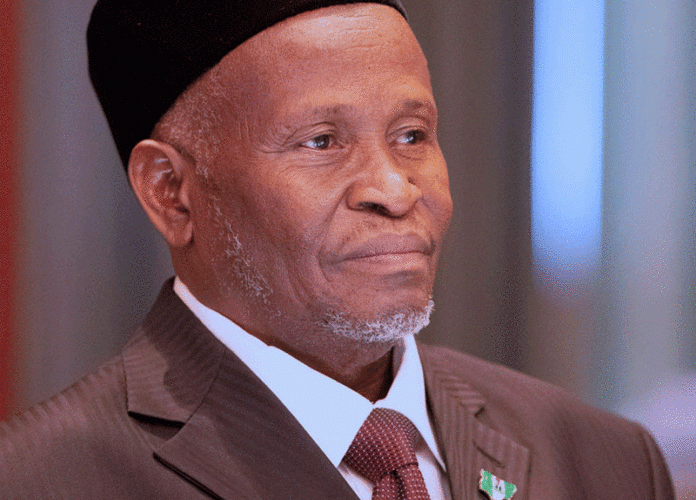The appointment of the latest batch of Court of Appeal Justices has been strewn with controversies, not least the claim that the interviews conducted by the National Judicial Council was perhaps shambolic. Just when justice sector stakeholders thought that the ghost of the troubled exercise was to be laid to rest with the scheduled swearing-in of the justices, the ceremony was postponed indefinitely ostensibly to enable the new justices “clear their desks in their various offices.” In this piece, KAYODE OGUNDAIRO posits that on the strength of the undisturbed judgement of the Supreme Court in OGBUNYIYA v OKUDO, any judicial acts done by the justices after their appointments would be a nullity and liable to being set aside on appeal.
The indefinite postponement of the swearing-in of the newly appointed justices of the Court of Appeal came to many as a shock, not least because of the reason adduced for the aborted exercise. This is a purely judicial matter outside the remit of the National Judicial Council (NJC).
If “clear their desks in their various offices to ensure that there are no outstanding issues before they assume their new responsibilities” suggests that the Justices should proceed to deliver judgments/rulings or discharge any other judicial role in the Federal High Court/High Court/ National Industrial Court under the guise of ‘clearing their desks”, that would, with great respect, amount to an exercise in futility on the strength of OGBUNYIYA v OKUDO (1979) 9 SC 32 as recently reinforced by UDEOGU v FRN.
OGBUNYIYA v. OKUDO dealt with provisions impari materia with ss. 283(2) and 290(1) of the 1999 Constitution (as amended) which are crystal clear.
238 (2): “The appointment of a person to the office of a Justice of the Court of Appeal shall be made by the President on the recommendation of the National Judicial Council”.
290 (1): A person appointed to any judicial office shall not begin to perform the functions of that office until he has declared his assets and liabilities as prescribed under this Constitution and has subsequently taken and subscribed the Oath of Allegiance and the Judicial Oath prescribed in the seventh Schedule to this Constitution.
In OGBUNYIYA v OKUDO, the submission of Chief F.R.A. Williams on behalf of the Appellants, was that by virtue of the appointment of Nnaemeka-Agu J. (as he then was) as expressed in Exhibit SC.1, he ceased to be a Judge of the High Court of Anambra State on the 15th June, 1977, two days prior to delivery by him of the judgement on appeal.
The reaction of Mr. Afolabi Lardner (of counsel) for the Respondents was that until the Learned Judge was sworn in as Justice of the Court of Appeal, he was precluded by virtue of Section 128 of the Constitution of the Federation No. 20 of 1963 from entering upon the duties of his office, so that in the absence of evidence that he had on or prior to the 17th of June, 1977 been sworn in as a Judge of the Federal Court of Appeal, he was on that date still a Judge of the High Court of Anambra State.
The Supreme Court construed Section 128 of the Constitution of the Federation No. 20 of 1963 as amended by section 1(c) of the Schedule to The Constitution (Amendment) (No. 2) Decree No. 42 of 1976 (impari materia with s. 290(1) of the 1999 Constitution, as amended) which made it imperative that “a Judge of the Federal Court of Appeal” shall not enter upon the duties of his office unless he has “taken or subscribed the Oath of Allegiance and such oath for the execution of the duties of his office as may be prescribed by Parliament”.
Allowing the appeal, the Supreme Court set aside the judgment delivered by Justice Nnaemeka-Agu (after his appointment as JCA but before he took the requisite oath) and ordered a trial de novo.
The Supreme Court held thus:
“A close look at Section 128 of the Constitution (No. 20 of 1963) as amended by the Schedule to Decree No. 42 of 1976 shows clearly that the section is intended to lay down a condition precedent to the functioning but NOT the appointment of a Judge. That section impliedly recognises the fact of appointment (already as a Judge) of the incumbent of that public office but makes the swearing of the prescribed oaths condition precedent to his functioning in that office. The language of the section reads:
“A Judge of the Supreme Court, Federal Court of Appeal and of the High Court of Lagos NOT a person appointed to be a Judge of the Supreme Court, Federal Court of Appeal and of the High Court of Lagos shall not enter upon the duties of his office (not, be it noted, enter upon his office) unless he has taken or subscribed the Oath of Allegiance and such oath for the due execution of his office as may be prescribed by (Italics supplied by Court).
… The language of section 128 aforesaid is directed to the entering by a judge (not by a judge designate) upon the duties of his office (not, upon his office).
This should ordinarily rest the matter. (Citylawyermag)





